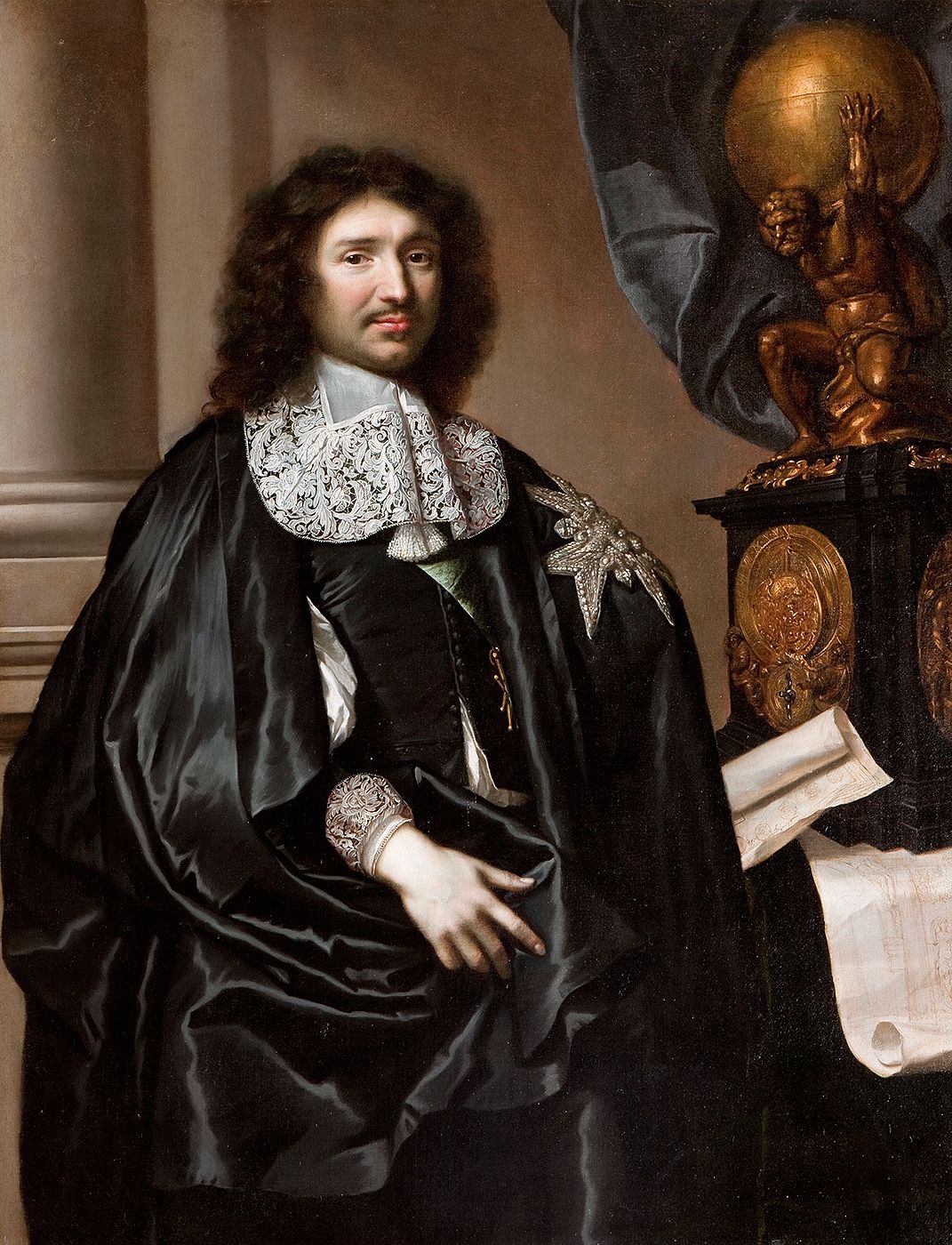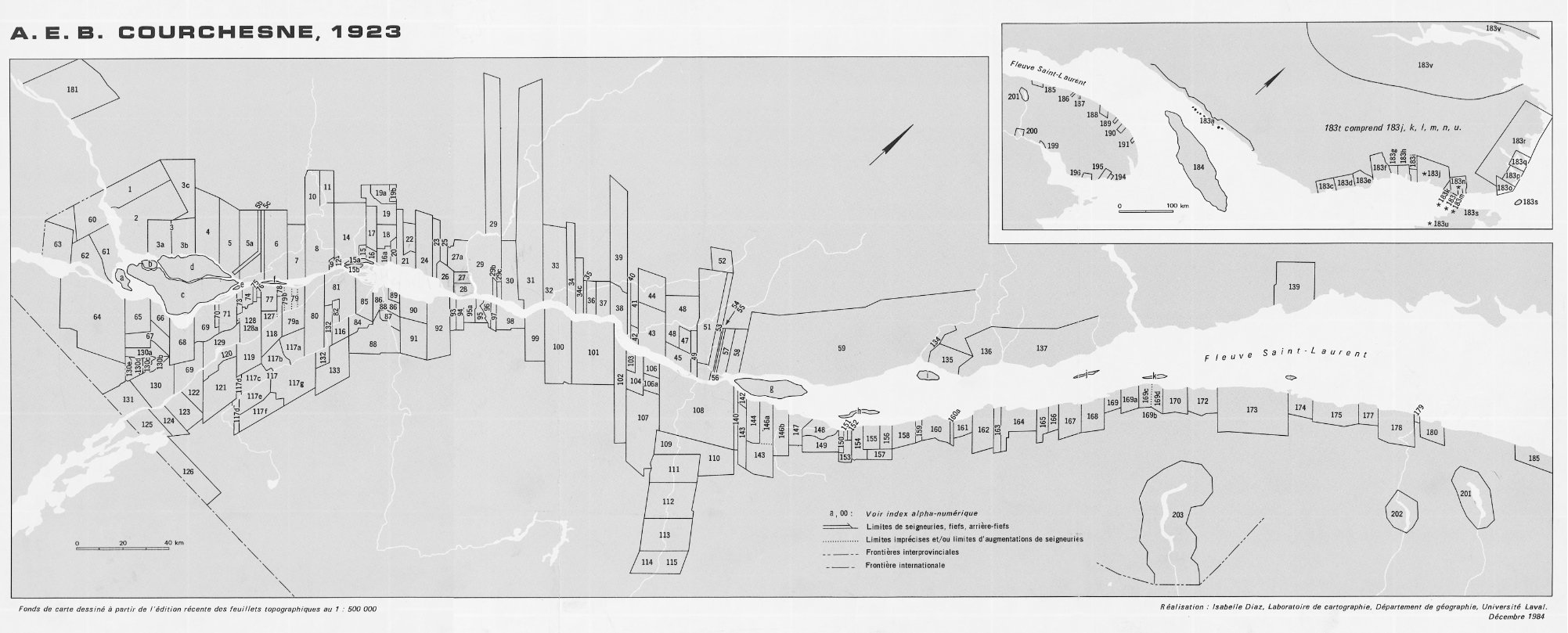|
Intendant Of New France
The Intendant of New France was an Public administration, administrative position in the French colony of New France. He controlled the colony's entire civil administration. He gave particular attention to settlement and economic development, and to the administration of justice. The office of the Intendant of New France was created by Louis XIV. In 1663, Louis and his minister decided to give New France a new constitution. The charter of the Company of One Hundred Associates, One Hundred Associates was cancelled and the old Council of Quebec, which was formed in 1647, reorganized and became the Sovereign Council of New France. The Sovereign Council was composed of the governor, the bishop, the intendant, an attorney-general, a secretary, and five councillors. Because the Intendant of New France managed the financial matters like money and so on, as well as the infrastructure of the colony, he had an enormous amount of influence in the colony's government. Origin of position During ... [...More Info...] [...Related Items...] OR: [Wikipedia] [Google] [Baidu] |
Public Administration
Public administration, or public policy and administration refers to "the management of public programs", or the "translation of politics into the reality that citizens see every day",Kettl, Donald and James Fessler. 2009. ''The Politics of the Administrative Process''. Washington D.C.: CQ Press and also to the academic discipline which studies how public policy is created and implemented. In an academic context, public administration has been described as the study of government decision-making; the analysis of policies and the various inputs that have produced them; and the inputs necessary to produce alternative policies. It is also a subfield of political science where studies of policy processes and the structures, functions, and behavior of public institutions and their relationships with broader society take place. The study and application of public administration is founded on the principle that the proper functioning of an organization or institution relies on effectiv ... [...More Info...] [...Related Items...] OR: [Wikipedia] [Google] [Baidu] |
Jean-Baptiste Colbert
Jean-Baptiste Colbert (; 29 August 1619 – 6 September 1683) was a French statesman who served as First Minister of State from 1661 until his death in 1683 under the rule of King Louis XIV. His lasting impact on the organization of the country's politics and markets, known as Colbertism, a doctrine often characterized as a variant of mercantilism, earned him the nickname ''le Grand Colbert'' (; "the Great Colbert"). A native of Reims, he was appointed Intendant of Finances on 4 May 1661. Colbert took over as Controller-General of Finances, a newly created position, in the aftermath of the arrest of Nicolas Fouquet for embezzlement, an event that led to the abolishment of the office of Superintendent of Finances. He worked to develop the domestic economy by raising tariffs and encouraging major public works projects, as well as to ensure that the French East India Company had access to foreign markets, so that they could always obtain coffee, cotton, dyewoods, fur, pepper, ... [...More Info...] [...Related Items...] OR: [Wikipedia] [Google] [Baidu] |
List Of Seignories Of Quebec
Seignories have existed in Québec from 1627 until the British conquest of New France in 1763 and continued in the British colony of the Province of Quebec (1763–1791), then in Lower Canada (1840) and in the Province of Canada until 1854.The general law of 1854 on the abolition of the seigneurial system in Canada does not apply to the . The numbering is based on the below A.E.B. Courchene map. See also *Intendant of New France *Governor of New France *Governor of Lower Canada * *Seigneurial system of New France The manorial system of New France, known as the seigneurial system (, ), was the semi-feudal system of land tenure used in the North American French colonial empire. Economic historians have attributed the wealth gap between Quebec and other pa ... References External links * * {{DEFAULTSORT:Seignories of Quebec Quebec-related lists ... [...More Info...] [...Related Items...] OR: [Wikipedia] [Google] [Baidu] |
Minister Of Marine
One of France's Secretaries of State under the Ancien Régime was entrusted with control of the French Navy ( Secretary of State of the Navy (France).) In 1791, this title was changed to Minister of the Navy. Before January 1893, this position also had responsibility for France's colonies, and was usually known as Minister of the Navy and Colonies, a role thereafter taken by the Minister of the Overseas. In 1947 the naval ministry was absorbed into the Ministry of Defence, with the exception of merchant marine affairs which had been split in 1929 to the separate Ministry of Merchant Marine. History The two primary formations of the French Navy, the Ponant Fleet and Levant Fleet, were placed under the control of Jean-Baptiste Colbert in 1662, whilst he was " intendant des finances" and "minister of state" – but not "secretary of state" : he only became secretary of state in 1669 after having bought his way into the post. From then on, right up to the French Revolution, a ... [...More Info...] [...Related Items...] OR: [Wikipedia] [Google] [Baidu] |
Seigneurial System Of New France
The manorial system of New France, known as the seigneurial system (, ), was the semi-feudal system of land tenure used in the North American French colonial empire. Economic historians have attributed the wealth gap between Quebec and other parts of Canada in the 19th and early 20th century to the persistent adverse impact of the seigneurial system. Both in nominal and legal terms, all French territorial claims in North America belonged to the French king. French monarchs did not impose feudal land tenure on New France, and the king's actual attachment to these lands was virtually non-existent. Instead, landlords were allotted land holdings known as manors and presided over the French colonial agricultural system in North America. The first grant of manorial land tenure in New France was awarded to Jean de Biencourt de Poutrincourt et de Saint-Just in 1604, with the Seigneury of Port Royal in Acadia. This grant was reaffirmed by King Henry IV of France on February 25, 160 ... [...More Info...] [...Related Items...] OR: [Wikipedia] [Google] [Baidu] |
French Livre
The livre (abbreviation: Pound sign, £ or Livre tournois, ₶., French language, French for (pound)) was the currency of Kingdom of France and its predecessor states of Francia and West Francia from 781 to 1794. Several different livres existed, some concurrently. The livre was the name of coins and of units of account. History Origin and etymology The livre was established by Charlemagne as a unit of account equal to one Pound (mass), pound of silver. It was subdivided into 20 ''French sol, sous'' (also ''sols''), each sou equalling 12 ''French denier, deniers''. The word ''livre'' came from the Latin word ''Ancient Roman units of measurement#Weight, libra'', a Roman unit of weight and still the name of a Pound (mass), pound in modern French, and the denier comes from the Roman denarius. This system and the denier itself served as the model for many of Europe's currencies, including the British pound, Italian lira, Spanish dinero and the Portuguese dinheiro. This first l ... [...More Info...] [...Related Items...] OR: [Wikipedia] [Google] [Baidu] |
Monarchy
A monarchy is a form of government in which a person, the monarch, reigns as head of state for the rest of their life, or until abdication. The extent of the authority of the monarch may vary from restricted and largely symbolic (constitutional monarchy), to fully autocratic (absolute monarchy), and may have Political representation, representational, Executive (government), executive, legislative, and judicial functions. The Order of succession, succession of monarchs has mostly been Hereditary monarchy, hereditary, often building dynasties; however, monarchies can also be elective monarchy, elective and Self-proclaimed monarchy, self-proclaimed. Aristocracy (class), Aristocrats, though not inherent to monarchies, often function as the pool of persons from which the monarch is chosen, and to fill the constituting institutions (e.g. Diet (assembly), diet and Royal court, court), giving many monarchies oligarchic elements. The Legitimacy (political)#Monarchy, political legitim ... [...More Info...] [...Related Items...] OR: [Wikipedia] [Google] [Baidu] |
Cardinal Richelieu
Armand Jean du Plessis, 1st Duke of Richelieu (9 September 1585 – 4 December 1642), commonly known as Cardinal Richelieu, was a Catholic Church in France, French Catholic prelate and statesman who had an outsized influence in civil and religious affairs. He became known as the Red Eminence (), a term derived from the style of Eminence (style), Eminence applied to Cardinal (Catholic Church), cardinals and their customary red robes. Consecrated a bishop in 1607, Richelieu was appointed Secretary of State for Foreign Affairs (France), Foreign Secretary in 1616. He continued to rise through the hierarchy of both the Catholic Church and the French government, becoming a Cardinal (Catholic Church), cardinal in 1622 and Chief minister of France, chief minister to King Louis XIII, Louis XIII of France in 1624. He retained that office until his death in 1642, when he was succeeded by Cardinal Cardinal Mazarin, Jules Mazarin, whose career the cardinal had fostered. Richelieu became enga ... [...More Info...] [...Related Items...] OR: [Wikipedia] [Google] [Baidu] |
French Colony
The French colonial empire () comprised the overseas Colony, colonies, protectorates, and League of Nations mandate, mandate territories that came under French rule from the 16th century onward. A distinction is generally made between the "First French colonial empire", that existed until 1814, by which time most of it had been lost or sold, and the "Second French colonial empire", which began with the French conquest of Algeria, conquest of Algiers in 1830. On the eve of World War I, France's colonial empire was List of largest empires, the second-largest in the world after the British Empire. France began to establish colonies in the French colonization of the Americas, Americas, the Caribbean, and French India, India in the 16th century but lost most of its possessions after its defeat in the Seven Years' War. The North American possessions were lost to Britain and Spain, but Louisiana (New France), Spain later returned Louisiana to France in 1800. The territory was then Loui ... [...More Info...] [...Related Items...] OR: [Wikipedia] [Google] [Baidu] |
King Of France
France was ruled by monarchs from the establishment of the kingdom of West Francia in 843 until the end of the Second French Empire in 1870, with several interruptions. Classical French historiography usually regards Clovis I, king of the Franks (), as the first king of France. However, historians today consider that such a kingdom did not begin until the establishment of West Francia, after the fragmentation of the Carolingian Empire in the 9th century. Titles The kings used the title "King of the Franks" () until the late twelfth century; the first to adopt the title of "King of France" (Latin: ''Rex Franciae''; French language, French: ''roi de France'') was Philip II of France, Philip II in 1190 (r. 1180–1223), after which the title "King of the Franks" gradually lost ground. However, ''Francorum Rex'' continued to be sometimes used, for example by Louis XII in 1499, by Francis I of France, Francis I in 1515, and by Henry II of France, Henry II in about 1550; it was ... [...More Info...] [...Related Items...] OR: [Wikipedia] [Google] [Baidu] |







